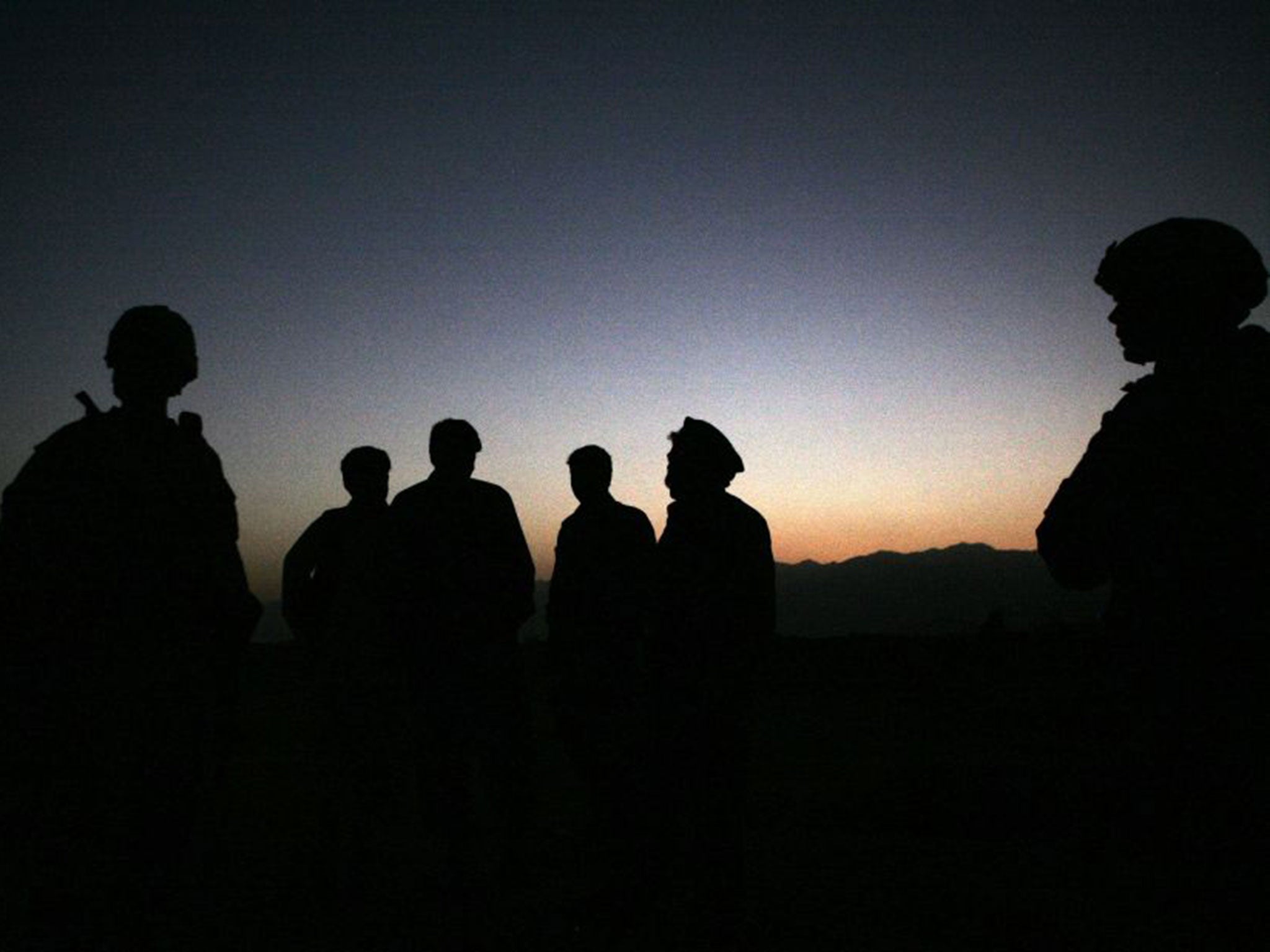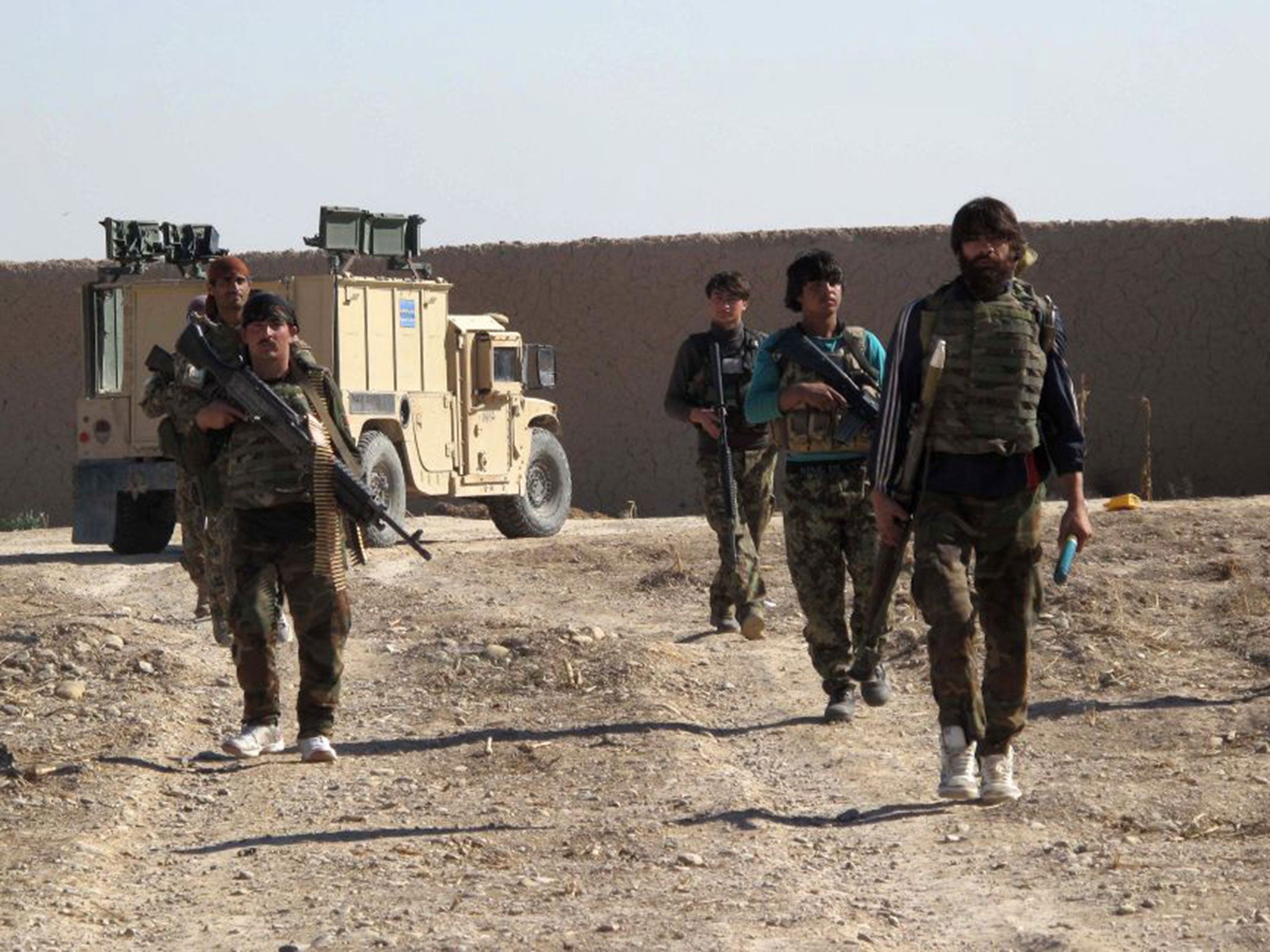Afghan government forces battle Taliban for control of Sangin in Helmand province
Helmand is an important Taliban base as it produces most of the world’s opium

Your support helps us to tell the story
From reproductive rights to climate change to Big Tech, The Independent is on the ground when the story is developing. Whether it's investigating the financials of Elon Musk's pro-Trump PAC or producing our latest documentary, 'The A Word', which shines a light on the American women fighting for reproductive rights, we know how important it is to parse out the facts from the messaging.
At such a critical moment in US history, we need reporters on the ground. Your donation allows us to keep sending journalists to speak to both sides of the story.
The Independent is trusted by Americans across the entire political spectrum. And unlike many other quality news outlets, we choose not to lock Americans out of our reporting and analysis with paywalls. We believe quality journalism should be available to everyone, paid for by those who can afford it.
Your support makes all the difference.Taliban gunmen and government forces are battling for control of a strategic district in the southern province of Helmand after it was overrun by Taliban insurgents, delivering a serious blow to government forces.
Mohammad Jan Rasulyar, Helmand’s deputy governor, said insurgents took control of Sangin district on Sunday. Only Afghan army facilities in the district had not been taken by the insurgents, he said. Casualties among Afghan security forces were high, he added, though he gave no figures.
Afghan army commandos and special forces had arrived in Sangin to push a counter-offensive, the defence ministry spokesman, Dawlat Waziri, said. He told reporters the Afghan air force had conducted 160 combat and transport flights over Sangin in the past 48 hours.
Among the insurgent forces in Helmand, “three out of 10 are foreign fighters,” he said, adding that they included Pakistanis, Chechens, Uzbeks, Arabs and Chinese Uighurs. “The presence of the foreigners in this imposed war complicates the sitaution in Helmand,” he said, echoing the government line that the war is run by a Taliban leadership believed to be based in Pakistan with official protection.
Helmand is an important Taliban base as it produces most of the world’s opium, a crop that helps fund the insurgency.
Sangin district has bounced in and out of Taliban control for some years, and fighting there has produced high casualties among both Afghan and international forces. British troops in particular saw intensive fighting there at the height of the war in 2006 and 2007.
Deputy governor Rasulyar took the unusual step of using his Facebook page on Sunday to warn President Ashraf Ghani that the entire province of Helmand was in danger of falling to Taliban insurgents if central authorities failed to send help.
In Helmand, more than 90 members of the Afghan security forces died fighting in the two days before his Facebook plea, with hundreds killed in the past six months, he said in his open letter to Ghani.

The head of Helmand’s provincial council, Muhammad Kareem Atal, said that 28 members of the Afghan security forces – usually a reference to army and police who also fight on the front lines across the country – were killed fighting on Sunday. Another 15 were critically wounded, he said.
“Around 65 percent of Helmand is now under Taliban control,” Atal said. “In every district either we are stepping back or we are handing territory over to Taliban, but still, until now, no serious action has been taken,” he said, echoing Mr Rasulyar’s plea to the central authorities for help.
Atal said more than 2,000 members of the security forces had been killed fighting in Helmand in 2015.
The Taliban insurgency has spread across the country this year, following the withdrawal of international combat forces at the end of 2014. This has stretched government resources thin, as the traditional winter lull in fighting has so far failed to take place in the warmer, southern provinces.
Also today, six American soldiers were killed in a suicide attack claimed by the Taliban near the US-run Bagram airfield in Afghanistan. Another three Nato troops were wounded in the attack, the largest attack on foreign troops in Afghanistan since August, according to Nato.
It was the first major attack on a Nato military convoy since 22 August, when three American contractors were killed in a suicide attack on their convoy in Kabul. On 7 and 8 August, Kabul was the scene of three insurgent attacks within 24 hours that left at least 35 people dead.
Join our commenting forum
Join thought-provoking conversations, follow other Independent readers and see their replies
Comments